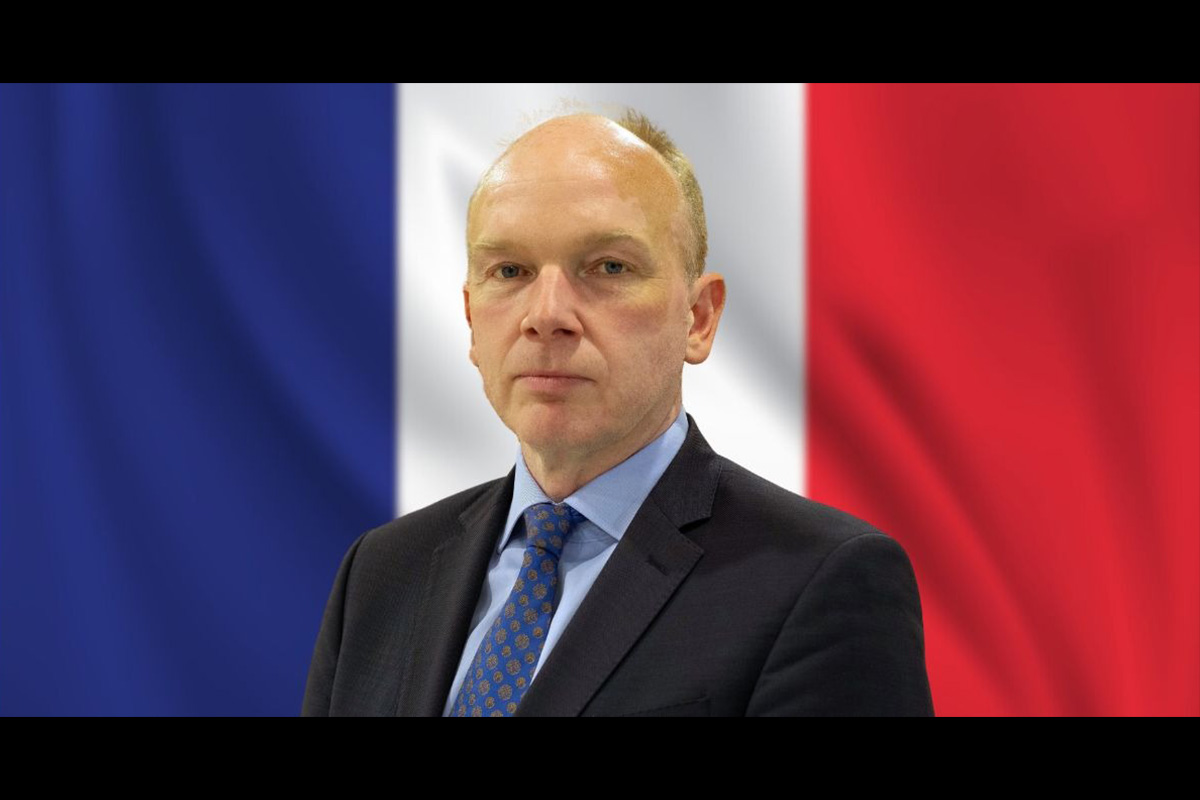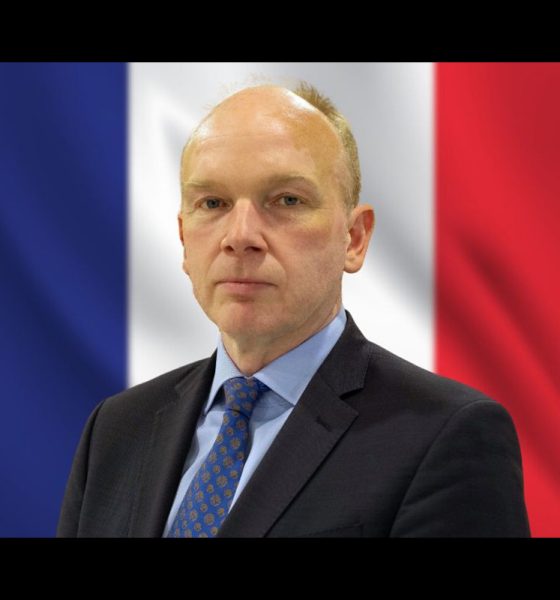

Compliance Updates
EGBA Urges France to Regulate Online Casino
The European Gaming and Betting Association (EGBA) expressed its concern about the findings of a new study into the size of France’s black market for online gambling. The study, commissioned by the national gambling authority l’Autorité Nationale des Jeux, estimates France’s black market for online gambling to be worth up to €1.5 billion annually in gross gaming revenue (GGR), equivalent to nearly half France’s regulated online gambling revenue. This suggests that France has one of the EU’s largest online gambling black markets and, to address the problem, EGBA calls on the French authorities to end the country’s ban on online casino games.
Although France is one of Europe’s significant gambling markets, it is one of just two EU countries which has a ban on online casino games, creating a black market with all its inherent risks. The new study, conducted by PwC, found that websites offering online casino games are major contributors to the country’s online black market and, along with slots, account for up to 50% of France’s black market website traffic. While there is clearly demand in France for these games, these websites operate outside of French laws and many of them threaten the safety of French players, who have no legal recourse or minimum protections, such as self-exclusion, when they use them.
The study found that around 3 million French players use black market websites at least once a month. Even more concerning, the study also established that high risk players account for 79% of the GGR generated by these players in the black market, meaning vulnerable players can be exposed to unsafe, unregulated websites which offer them no safer gambling protections.
To safeguard these players and foster a safe gambling environment for all, EGBA urged the French authorities to reassess the country’s existing ban on online casino games, and, consistent with the already established French regulation of online sports betting, take the necessary steps to ensure there is a safe and regulated environment also for the country’s online casino players. Such a regulatory framework should be based on a multi-licensing model, where several operators can obtain business-to-customer licenses, as this has long been proven to be the most effective method to reduce black markets in online gambling.
“The scale of France’s online black market is alarming, and we believe it is one of the EU’s largest online gambling black markets, alongside Germany and Italy. The country’s prohibition of online casino is clearly a big part of the problem. Given the popularity of online casino, and the need to protect consumers from the risks of the black market, it is imperative that the French authorities urgently reassess their current ban on online casino games. The ban is counterproductive and fails consumers. By regulating online casino games through a multi-licensing model, France would better protect its consumers, regain more control over its online gambling market, and secure vital tax revenues. The best way to tackle a black market is to establish a competitive regulated market alternative. The time to act is now,” Maarten Haijer, Secretary General of EGBA, said.
Compliance Updates
Nevada Rep. Dina Titus to Add FAIR BET Act to 2026 Defense Budget

Nevada Rep. Dina Titus is strategically pushing forward her Fair Accounting for Income Realized from Betting Earnings Taxation Act, commonly known as the FAIR BET Act. She intends to attach it to the 2026 National Defense Authorization Act (NDAA), a key piece of legislation that must pass annually. This maneuver, revealed on August 27, is designed to increase the chances that her proposal will be enacted into law.
The FAIR BET Act seeks to reverse a disputed provision introduced under former President Donald Trump’s One Big Beautiful Bill Act. The provision lowered the gambling loss deduction from 100% to 90%, which is set to take effect in January 2026. This change has met significant resistance from both the gaming industry and individual gamblers, who argue that it unfairly taxes money that they never actually won.
Representative Titus, who co-leads the Congressional Gaming Caucus, initially introduced this succinct bill in July. However, it stalled in the House Ways and Means Committee. To overcome this hurdle, she is leveraging a common legislative tactic by attaching the amendment to the NDAA. Around two decades ago, a similar strategy helped pass the Unlawful Internet Gambling Enforcement Act amid a port security bill.
The initiative enjoys strong support from major gaming industry leaders and state officials. Prominent executives from companies such as MGM Resorts, Caesars, and Wynn Resorts have expressed concern to lawmakers about the financial impact this deduction limit could have on both players and casinos. The American Gaming Association has also condemned the recent tax rule, stressing that it unfairly penalizes a legal and regulated industry.
The FAIR BET Act is gaining momentum across party lines. So far, ten members in the House have endorsed it as co-sponsors. In addition, a Republican counterpart titled the WAGER Act was introduced in July by Representative Andy Barr of Kentucky. In the Senate, Nevada Senator Catherine Cortez Masto has proposed a similar measure known as the FULL HOUSE Act.
Supporters emphasize the importance of this amendment for states like Nevada, where gambling significantly contributes to the economy. However, some critics argue that inserting tax policy changes into a defense authorization bill represents an overreach by lawmakers.
The amendment is currently under review by the House Rules Committee, with a vote expected within the next several weeks.
The post Nevada Rep. Dina Titus to Add FAIR BET Act to 2026 Defense Budget appeared first on Gaming and Gambling Industry in the Americas.
Compliance Updates
Romania Blocks 30 Unlicensed Gambling Websites

Romania’s gambling authority, the ONJN, has blacklisted 30 gambling websites after finding they were offering online casino and sports betting without local licences. Internet service providers (ISPs) now have 15 days to cut access, redirecting users to an official ONJN page explaining the block.
The 30 blocked sites range from obscure names to platforms that had been attracting steady traffic. Domains include wazbee.casino, jacktop.com, roostake.com, a string of “nv” branded casinos (nv5.casino through nv93.casino), and several under the ybets label.
Some of these platforms appeared almost overnight and marketed heavily on social media. Others had been active for months, drawing Romanian players with offers that licensed brands simply cannot match under current advertising rules.
The ruling obliges Romanian ISPs to redirect any traffic from the blacklisted domains to a designated ONJN IP address. Players trying to access those sites will instead see a page confirming the operator is not authorised to operate in Romania.
The post Romania Blocks 30 Unlicensed Gambling Websites appeared first on European Gaming Industry News.
Asia
New Indian Law Aims to Curb Online Money Gambling Sector, Prohibits Related Advertising

Following the passage of the Promotion and Regulation of Online Gaming Bill 2025 on August 21, the government of India imposes a complete ban on online money games, alongside the advertisements related to the sector.
Passed by the parliament, any financial transactions related to these platforms would be considered unlawful as stated under the Information Technology Act of 2000. The legislation also aims to establish a national-level regulatory authority that will govern the categorising and registration of online games.
The said authority shall issue guidelines, codes of practice and directions for compliance, with strict punishments induced, leading to imprisonment for up to three years, and a fine to one crore rupees or 114,017 USD.
The advertisement of the said games is also punishable with similar penalties, with imprisonment up to two years and a fine of up to fifty lakh rupees 1140 USD.
While the law prohibited online money gaming such poker, rummy and fantasy sports that offer cash rewards, e-sports are considered and recognised as a legitimate competitive sport in India, and is not included in the total ban, as well as online social games or casual games that are recreational in nature.
This draws that the bill-turned-law, used a “balanced approach” since recognising that the online gaming sector is one of the most dynamic segments in the digital and creative economy, hence, still allowing esports and online social games.
This came after the report of over 45 crore or 45,000,000 people were reportedly affected by online money games and have lost more than Rs. 20,000 crores or 2,280.414 USD, according to Shri Ashwini Vaishnaw, Union Minister for Electronics and Information Technology.
According to the same ministry, the total ban was driven by the following reasons:
• Addiction and Financial Ruin
• Mental Health and Suicide
• Fraud and Money Laundering
• Threat to National Security
• Closing Legal Loopholes
• Encouraging Healthy Alternatives
Meanwhile, the bill also stated that while the online gaming authority governs the registration of online games, the central government still has the authority to frame the rules for the promotion and advertisement of e-sports, online social games and other rules related under the law.
In total, the legislation aims to safeguard vulnerable populations, particularly the middle class and youth by introducing these strict regulations and a greater emphasis on brand responsibility and ethical advertising.
The post New Indian Law Aims to Curb Online Money Gambling Sector, Prohibits Related Advertising appeared first on European Gaming Industry News.
-

 gaming3 years ago
gaming3 years agoODIN by 4Players: Immersive, state-of-the-art in-game audio launches into the next generation of gaming
-
EEG iGaming Directory8 years ago
iSoftBet continues to grow with new release Forest Mania
-
News7 years ago
Softbroke collaborates with Asia Live Tech for the expansion of the service line in the igaming market
-
News7 years ago
Super Bowl LIII: NFL Fans Can Bet on the #1 Sportsbook Review Site Betting-Super-Bowl.com, Providing Free Unbiased and Trusted News, Picks and Predictions
-
iGaming Industry8 years ago
Rick Meitzler appointed to the Indian Gaming Magazine Advisory Board for 2018
-
News7 years ago
REVEALED: Top eSports players set to earn $3.2 million in 2019
-
iGaming Industry8 years ago
French Senator raises Loot Boxes to France’s Gambling Regulator
-
News7 years ago
Exclusive Interview with Miklos Handa (Founder of the email marketing solutions, “MailMike.net”), speaker at Vienna International Gaming Expo 2018









